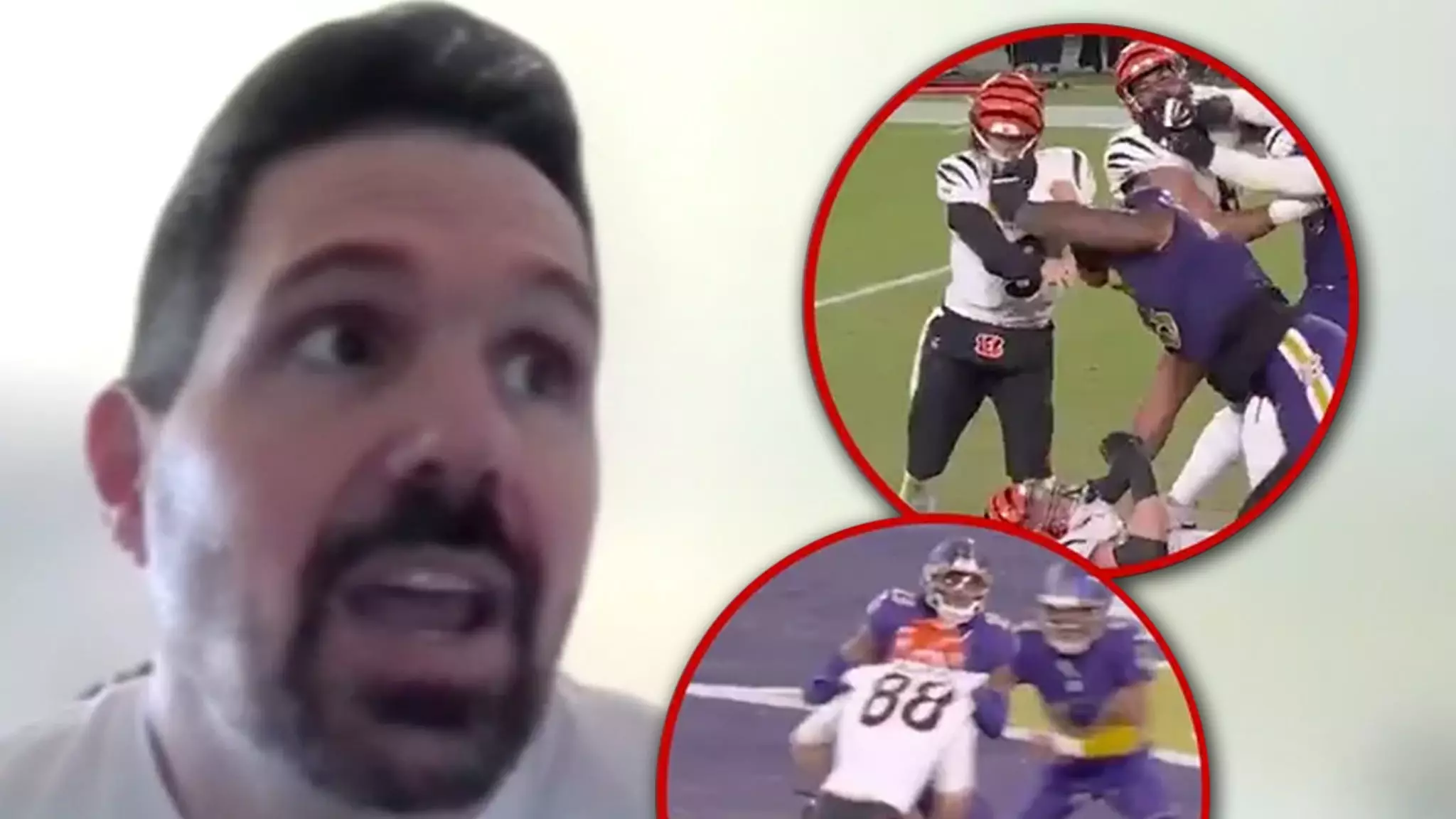In the realm of professional sports, few events evoke as much passion and ire as a controversial officiating decision. The recent blunders during the Ravens vs. Bengals game have stirred intense scrutiny among fans, analysts, and players alike. The two pivotal missed calls during a crucial two-point conversion attempt raised significant questions not only about the competence of the referees but also about the overall integrity of officiating in the NFL. As the dust settles on the game, the outcry highlights a growing dissatisfaction with the current state of officiating and its implications for the league.
To address these controversies, Dean Blandino, the former Vice President of Officiating for the NFL, offers poignant insights into the evolving landscape of officiating. Blandino emphasizes the need for expanded replay systems to support referees in making critical decisions. In a time when technology has permeated all aspects of sports, his call for enhancing the tools available to officials seems not just reasonable but necessary. Initially, referees feared that the integration of technology would undermine their authority. However, as technology has progressed, it stands as an essential ally in ensuring accuracy, which is paramount in high-stakes moments.
What is often overlooked in the avalanche of criticism directed at game officials is the human aspect of officiating. Blandino adeptly points out that officials are as dedicated to accuracy as the players themselves. The inherent pressure of making instantaneous decisions under immense scrutiny can have profound psychological impacts on referees. This understanding presents an opportunity for the league to invest in mental resilience training and support systems for officials, fostering an environment where they can perform without undue stress or fear of error.
Despite the clear need for reforms, the reality remains that once a game concludes, there are no mechanisms to retroactively change the outcome. The Bengals, having endured the consequences of missed calls, like any disappointed team, must come to terms with the loss. Referees too face repercussions, with evaluations determining their future assignments. While it’s vital for officiating crews to be held accountable, it raises the question: are current evaluation methods sufficient? The league may need to look at comprehensive metrics, allowing for refined analyses that provide not only corrective measures but also support for development.
The missed calls during the Ravens vs. Bengals matchup exemplify broader issues within NFL officiating that need urgent attention. Embracing advanced technological resources and fostering a supportive environment for referees could enhance decision-making processes. Moving forward, this discourse around officiating must evolve into actionable strategies that prioritize integrity and quality within the game. As the NFL continues to capture the hearts and minds of millions, it must also ensure that the framework supporting its on-field decisions remains robust, fair, and transparent.

Leave a Reply